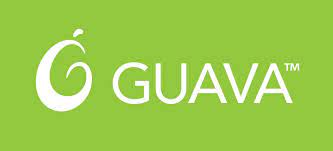
OS 001: System Guava Removal
OS-001 Removes usage of Google Guava Library
Date: 2018-02-20
Status
Implemented
Context

Guava is an historical effort to provide much-needed functionalities to the Java community. The Java ecosystem evolves quite slowly at the beginning of the millennium. Later stewardship clearly improved with a six-month release schedule approach. Preview and incubator initiatives allowed timely evaluation of new features and idioms in the Java language and ecosystem.
JDK versions from release 8 often provide better replacement methods for a lot of Guava functions. New JDKs are released every six months and provide regular improvements to the API. These improvements make Guava functions more and more obsolete.
Guava is an external library of high quality but still an additional dependency in the application. We always follow the rule to use language and standard library constructs over using external libraries. Guava tries to support older JDKs and, therefore, does not use more modern approaches defined in new API versions. We consider Guava has a legacy library. We are dedicated to writing modern Java using the latest official releases of the language and runtime environment.
The advantage is better integration, always synchronized with a new release of the JDK and no incompatibilities. The drawback is sometimes a slightly more cumbersome syntax or solution. [1].
Decision
All Guava usages shall be replaced by JDK standard functions. The main advantages are:
-
Current JDK versions provide their own implementation, e.g., in the Objects class.
-
Guava dependency is removed from our source code and compiled artifacts.
-
Guava is not optimized for idioms used in current JDK such as streams and extensive use of lambdas. Guava needs years to support new concepts such as algebraic data types.
|
This decision is against good practices documented in the first decade of this millennium. The Guava library did not evolve as rapidly as the new Java versions released in the second and third decades. We strongly advocate timely evolution. Try to avoid becoming laggards in your technology stack. As a rule, use the current Java release, or as a minimal version, the latest long-term supported version of Java. |
Consequences
-
Some operations are more complicated to implement because a solution is already provided in Guava.
-
We have the huge advantage of being able to use the current approaches provided in JDK and associated standard API.
-
Code uses the current constructs provided through last released JDK.